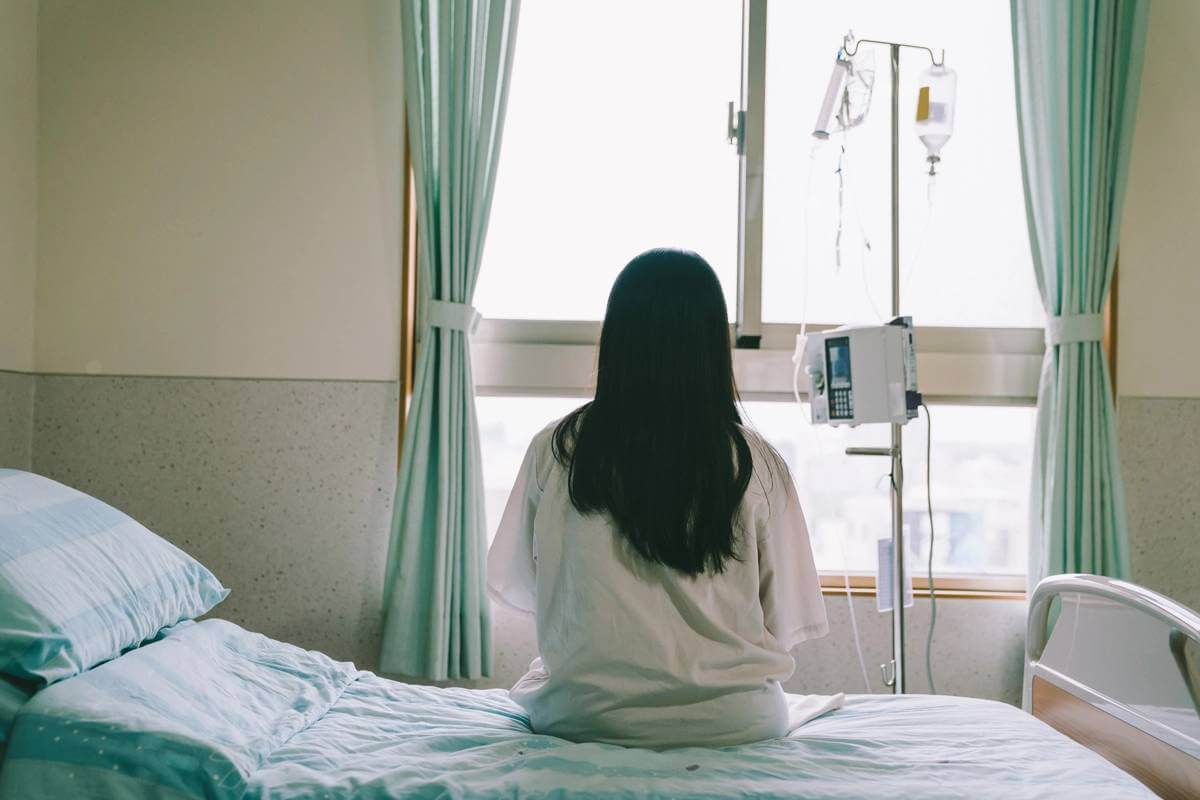If we are going to discuss therapy, then conversations about psychiatric hospitals are non-existent. We will look at what it’s like. Most of us have vivid ideas about staying in a psych ward. Hollywood movies present these ideas and sensationalist news stories. It is because of how we hear about people’s real-life stay at a psychiatric facility.
To provide a better picture, we collected feedback from people who have been in a psych ward to share what it was like for them. Let’s discuss.
Personal Experiences In a Psych Ward
John Richardson
John Richardson has been hospitalized five times. His last hospitalization was in September 2017 following the death of his coworker at Systems Limited, a non-profit organization that aims to bring stories of mental issues into the spotlight. John stayed for one week so he could get back on his antipsychotic medication to help stabilize his manic episodes.
His Feedback
The wailing of my roommate lulled me to bed —I wished. It would have made for a bedtime song. I turned my back and pulled the thin covers over my head, trying to forget why I was in this plastic bed. This wasn’t my first stay in a psychiatric hospital; it was my fifth. Or maybe my sixth. I’ve lost track.
It’s hard to fathom what living with a mental disorder is truly like. On top of my symptoms, I also struggled with memory loss, making me feel like I had aged thirty years. This, in turn, deepened my depression. I had been a college student desperately in need of a break, so I began to call my hospitalizations “grippy sock vacations.”
To check the time, you have to look for a clock in the hallway. If you’re lucky, you might also figure out what day it is—finding the date is a challenge in some places.
I didn’t blame my roommate for crying. Soon, she started screaming for someone to take her to the hospital because “something was wrong with the child”—but she wasn’t pregnant. A nurse managed to relax her, which was a sad situation, but my roommate yelled at me, which upset me that I stood up and left.
But leaving wasn’t as easy as it seemed.
Remember to read the fine print. The paper I signed meant I was on hold for 24 hours until I could speak to the doctor the next day. I wasn’t prepared for what life in a hospital entailed; no one ever talked about inpatient care or hospitalization.
I returned to the same room where I tried to avoid sleeping that night.
What I Discovered During My Two-Week Stay
The doctor informed me he would “take it all the way to court” if I didn’t agree. Two weeks? What was I supposed to do as a college student and part-time dog mom for so long? My head spun at the thought of all the work piling up. My stays had never lasted longer than a week; two weeks felt interminable and only added to my trauma.
A few days later, I donned my dull-colored grippy socks and headed to the cafeteria. It felt like a flashback to elementary school, where we were reprimanded for showing up in socks. In front of me, people were gossiping about the latest drama—a real, frightening physical fight, not just the petty squabbles of middle school. I remember the shouting , after the alarm rang.
Later, I learned my new roommate had instigated the fight. They had moved me to a different room, but I hadn’t even noticed my previous roommate’s absence that morning. Mental illness has a peculiar way of distorting reality, like mistaking toothpaste for face cream. Every day feels like that.
The same schedule and routine accompanied us to the cafeteria. The hospital aimed to teach us that routines could help alleviate depression and simplify life. You might believe that until you find yourself back in the same psychiatric ward.
As I moved through the cafeteria, making small talk with familiar faces, something flew past me—I think it was a cookie. Chaos erupted as yelling filled the air, and I sensed a fight brewing. Being an introvert, I sank down in my chair, hoping to blend into the background.
The Conversation We Must Have:
In a psychiatric ward, I notice a gray cloud settling over their head. The topic makes people fearful. Mentioning hospitals usually renders everyone silent, as if a taboo has been broken. While it may not be an uplifting subject, it’s an important one because mental health is a real issue.
Everyone has their own story. Psychiatric hospitals provide care for rejoining into the “real world.” I also learned that patients must be heard when they request enhancements in living conditions. Hospitals can be places to learn self-advocacy—not through fighting or hiding, but through calm conversations that ensure someone is listening. This approach allowed me to leave the hospital in just ten days instead of two weeks.
I also realized how vital a community and support system are. Many patients in the hospital understood me better than anyone else in my life.
Few Words
The experience of a psychiatric hospital differs for every person, but support can help you to recover. Try to communicate your concerns with hospital staff. If you’re checking into a psychiatric hospital it is helpful to speak with a loved one to support you during this time. It’s suggested that you be admitted, now you come to this decision with your will, there’s nothing wrong with you. You’re not alone.


